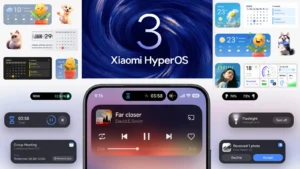Picture this: Android phones lighting up across continents — from busy markets in Lagos to subways in Tokyo, from farmers’ fields in India to cafés in Paris. Over 3 billion devices pulse daily with Google’s ecosystem. But this familiar digital rhythm is about to shift.
When the U.S. Supreme Court quietly refused to hear Google’s appeal in Epic Games v. Google, it didn’t just end a long legal battle — it sent a shockwave through the global app economy. The decision effectively forces Google to open its Play Store to alternative billing systems and rival app stores in the U.S. by October 22, 2025.
And while that’s an American deadline, the tremors will likely reach every corner of the Android world.
The Immediate Fallout in the U.S.
The legal story is simple but seismic. By declining Google’s appeal, the Supreme Court upheld a lower court’s decision requiring the company to loosen its grip on app payments and distribution. In short, U.S. developers will soon be free to direct users to their own payment systems — bypassing Google’s traditional 15–30% commission.
For Google, that means more than a lost revenue stream. It’s a forced redesign of the Play Store’s economic backbone — and a precedent that global regulators can’t ignore.
The Global Domino Effect
This U.S. ruling lands into a world already in regulatory motion.
- Europe’s Digital Markets Act (DMA) has already labeled Google as a “gatekeeper,” requiring fair access for competitors.
- India’s Competition Commission (CCI) has been investigating Google’s dominance for years, even fining it for Android bundling practices.
- South Korea passed its In-App Payment Law, forcing both Google and Apple to allow alternative billing systems.
- Japan is finalizing its App Store Fairness Bill, echoing similar antitrust themes.
Now, with America joining the chorus — albeit through the courts rather than legislation — these regulators have fresh fuel. Expect them to point to the U.S. case as proof that global alignment against digital monopolies isn’t just possible, but inevitable.
Google’s Strategic Dilemma: Fragment or Harmonize?
Google now faces a crossroads.
Does it fragment its compliance, tailoring different rules for each jurisdiction — one set for the U.S., another for the EU, and yet another for Asia?
Or does it harmonize globally, adopting a single, more open standard across all markets?
We’ve seen this before. When Europe introduced GDPR, global companies initially built regional compliance systems — until they realized it was easier (and better for PR) to roll out stricter privacy protections worldwide.
Google could take a similar route with the Play Store: one global, transparent policy for app billing and distribution. The alternative — managing a patchwork of local rules — would be a logistical nightmare and a reputational risk.
Implications for Developers and Users Abroad
For developers outside the U.S., this could be the opening they’ve been waiting for.
Smaller studios in regions like Latin America, Africa, and Southeast Asia have long been squeezed by Google’s commission fees. If the company extends its U.S. changes globally, those same developers could finally keep more of their earnings or experiment with local payment options — mobile money, crypto, or regional e-wallets.
For users, the picture is mixed. More competition could mean cheaper apps and more choices, but it also brings potential security and compatibility risks. After all, Google’s centralized Play Store does serve as a gatekeeper for safety. Open that gate too wide, and malware could find easier ways in.
The Next Frontier: Platform Governance Post-Play Store
The deeper story here isn’t just about billing. It’s about the future of platform governance.
If Google loosens control, we might see:
- The rise of regional app stores — locally run platforms optimized for specific cultures or economies.
- Government-backed repositories offering vetted apps with public oversight.
- Even blockchain-based distribution systems, where developers publish directly to decentralized networks.
What’s unfolding now could redefine not just how apps are sold, but how digital ecosystems are governed — shifting from corporate control to shared accountability.
Final Thoughts
Google’s Play Store overhaul may have started as a U.S. legal matter, but its implications are unmistakably global. The world’s regulators are watching closely. Developers are recalculating. Users are, perhaps unknowingly, standing at the threshold of a more open — and more complex — Android universe.
The real question isn’t whether Google will change. It’s how far beyond U.S. borders those changes will go.
Last Updated on October 18, 2025 by Lucy




